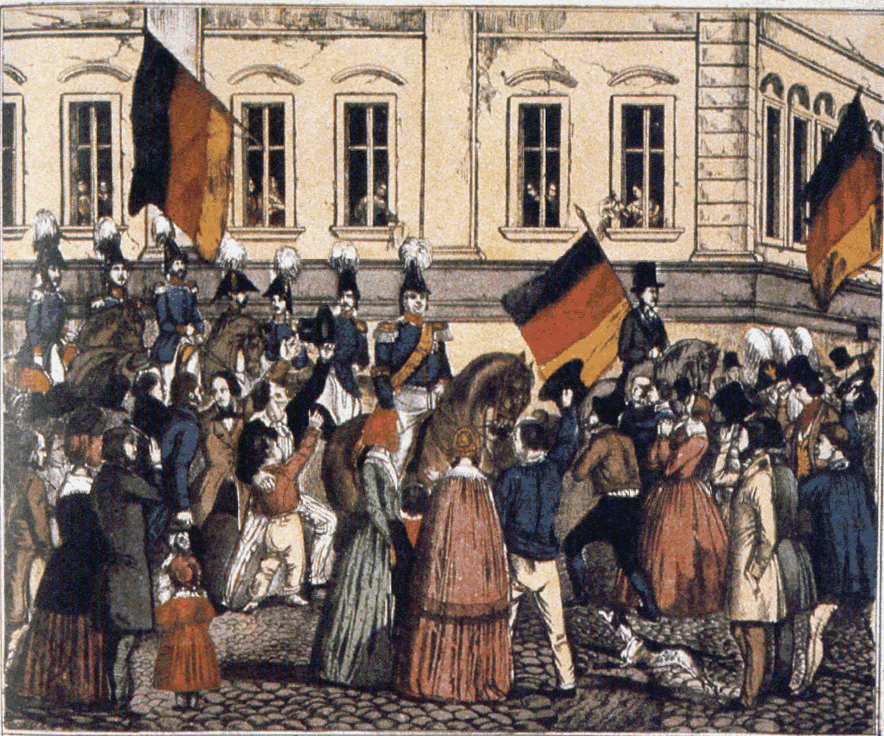 |
| "Black for the trim, Red for the coats, Gold for the buttons" (p.106) |
In 1806, the Germanic people had yet experienced a
country of their own. Previously encompassed in the Prussian Empire, an
independent German nation had yet to thrive. A number of factors influenced the
independence of the German Nation. Most importantly was the pressure of the
French. Many citizens began to feel the Prussian Empire was weak in comparisons
to the French nation. Influenced by this, many scholars and writers became
outspoken (p.104-105)
Let unanimity be your church! Make hatred
of the French be your religion, and let freedom and fatherhood be the saints to
whom you pray.
Ernst
Moritz Ardnt
Words
like this fuel the national movement coming. One could argue that this strong
belief in unity influences later decisions made by the German people, i.e.
world war.
The War of Liberation truly gave the people the excitement of the “German
Nation” (p. 106). Civilian outcry led to violence when completion of a new
nation constitution was not being completed. To squash revolutionary movements, the
kingdoms of Prussia and Austria ended talks.
 |
| Battle of Leipzig- Freiheitskriege |
Unrest spread through the land, yet
actions were not taken. Small town life ruled these two years of long awaited
peace. Underground, revolution was afoot. Not just in Prussia, but across
Europe, beginning with Paris in 1830. In Prussia, the German national movement
made its appearance at an All-German Festival. The movement multiplied in force
ranging from the original university students to farmers.
The crisis of 1840 greatly
influenced the desires of German nationalism. The ideology of physical fitness
and national defense went with this desire of nationalism. Throughout history,
one can observe these traits in German culture. Continuous rebellions lead the
way to the demand of the German Confederate to form a unified Nation.
 |
| Monarchs of German Confederation meet in Frankfurt in 1863. |
The German identity evolved out of
an early unified volunteer army. They had something to fight for, and this drove
them to fight for unity among their own peoples. The nation of Germany exudes
the ideals of nationalism, i.e. Weimar Republic and NSDAP. Formed from the
working class, this nationalism created a strong country, sung through music
and painted into history.
Nationalism is defined as “patriotic
feeling, principle, or efforts”. The people of the Germanic lands felt this
overwhelming desire to unify for a common nation. This is why Germany formed,
through the rebellions of the working people to have a nation to call theirs. Many
trials stood in their way, yet the greatest oppression came from foreign
countries, England and France, wishing to not lose the current balance of power
in Europe.
 |
| German Revolution of 1848 |
Compared to other strong nations,
the feelings of nationalism are as important as military power in maintaining
power. Without the desire to stay unified, a nation stands little chance of
remaining in history. Such is the case with the turn of the Prussian Empire and
German Confederation to the newly formed Germany. As mentioned above, throughout history German nationalism can be observed. One could argue it is this nationalism that help Germany survive its lengthy and tumultuous past.
No comments:
Post a Comment